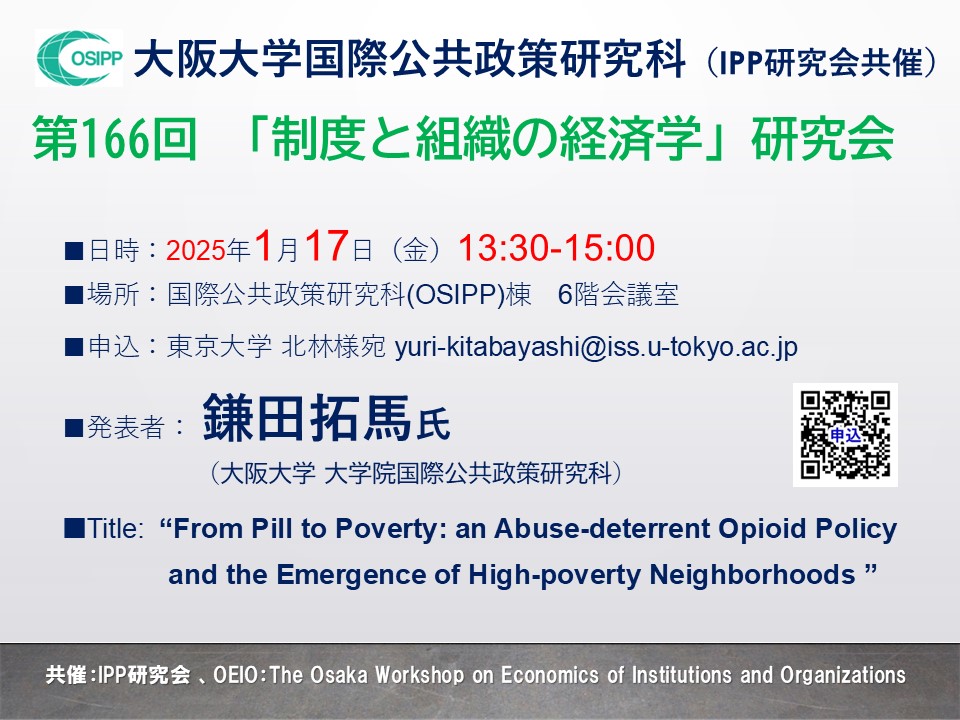
- 要申込
第166回「制度と組織の経済学」研究会 (共催:IPP研究会) 開催のお知らせ
対象 |
|
|---|---|
日時 | 2025.1.17 Fri 13:30 - 15:00 |
場所 |
|
申込方法 | 下記問合せ先:北林様宛にメールにて申込 |
問合せ | 東京大学社会科学研究所 北林様 |
「制度と組織の経済学」研究会はOEIO(The Osaka Workshop on Economics of Institutions and Organizations:東京大学社会科学研究所と大阪大学IPP研究会による研究会)の主催により、理論研究・実証研究を問わず、ミクロ経済理論、マクロ経済理論、経済史等をテーマに研究しています。 皆様のご参加をお待ちしております。
Presenter: 鎌田拓馬 氏( 大阪大学大学院 国際公共政策研究科 )
Title: ” From Pill to Poverty: an Abuse-deterrent Opioid Policy and the Emergence of High-poverty Neighborhoods ”
Abstract: The opioid crisis has had adverse public health effects, with the White population disproportionately affected in the initial phase. In 2010, OxyContin, one of the most abused prescription opioids, was reformulated to curb its abuse. This study demonstrates that the OxyContin reformulation contributes to the emergence of high-poverty neighborhoods. It argues that the reformulation leads opioid users to shift from prescription opioids to heroin, drawing them into crime-conducive neighborhoods where heroin is available. The findings reveal that years following the reformulation, White, but not minority, high-poverty neighborhoods emerge more in counties with initially high opioid dispensing rates relative to counties with low dispensing rates. The effects of the reformulation on high-poverty neighborhoods are greater in neighborhoods with initially high housing vacancies. Within high-vacancy areas in high-opioid counties, the availability of heroin increases post-reformulation. The reformulation induces short-distance migration among poor Whites, while it has negligible effects on poverty measures among non-migrant Whites. Taken together, the post-reformulation rise in White high-poverty neighborhoods is likely due to the migration of impoverished White people into high-vacancy neighborhoods where heroin is available, rather than White people becoming poor within their existing communities.